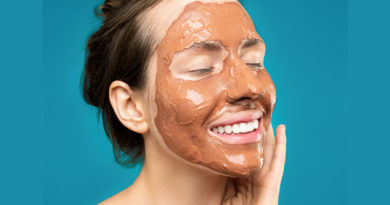10 Self-care Tips for Women Experiencing Menopause
If you’re a woman, menopause is the point in your life when you cease having your monthly menstrual cycle. This change in both hormones and lifestyle can lead to stress, so taking time for yourself is important. Give these 10 self-care tips a try and see how they can help you through this transitional time.

Source: Ground Picture/Shutterstock.com
1. Add Cranberries to Your Routine
When estrogen levels begin to fall, urinary tract infections can become problematic. This is mainly due to the thinning of the vaginal tissue, as well as changes in the bladder.
Fortunately, there’s an easy and tasty way to keep UTIs at bay — cranberries. Cranberries can help prevent bacteria from hanging around in the bladder, which reduces your risk of developing a UTI.
You can consume the cranberries whole, as tablets for menopause relief, or in a juice to help keep your urinary tract healthy. If you choose a juice, be sure to pick one that’s unsweetened. Added sugars can decrease the overall effectiveness.
2. Switch off Earlier
The hormonal changes brought on by menopause can make it difficult to get a restful sleep, but you still need a good night’s rest. Try switching off the TV, smartphone and other digital devices a bit earlier than usual to give yourself more time to decompress.
This also gives you time to try a breathing exercise, have a hot drink or even take a natural sleep aid like melatonin. In addition to helping you sleep, some studies say it helps prevent post-menopausal bone loss.
3. Hydrate Your Hair
Hair can become dry and brittle during menopause, but there are a few easy ways to combat this.
- Consume mono-saturated oils like sesame or olive oil.
- Take B6 and folic acid supplements.
- Drink green tea.
4. Discuss All of Your Options

Source: wutzkohphoto/Shutterstock.com
When dealing with menopause, there’s no better helper than your physician. Be open and honest about what you’re experiencing and what you’d like to see improved. Doctors can prescribe various treatments, including supplements, diet, exercise or hormone replacement therapy. Your doctor will surely have some helpful tips to help you make the most of menopause.
5. Clean Out Your Fridge
Processed foods, alcohol and refined sugars are all known to worsen menopause symptoms. Replace these culprits with protein, vitamins, high-quality protein and healthy fats, such as omega-3.
6. Seek Support
Menopause can make you feel alone when there’s no one around who understands the challenges it presents. Seeking out a support group can give you a place to vent your frustrations to sympathetic ears, as well as pick up tips.
Many discussion boards and groups online can help you find the community you need. To get started, consider checking out these helpful groups.
- Peanut Menopause — A digital community that provides a safe place for menopausal women to share their stories.
- Menopause Matters — A forum dedicated to all things menopause.
- The Daisy Network — A community designed for women undergoing early menopause.
7. Cut Down on Caffeine

Source: Farknot Architect/Shutterstock.com
Looking for how to beat menopause fatigue? Many women turn to caffeine to overcome this fatigue, but it’s a temporary fix. While it provides more energy, it can worsen the sleep problems associated with menopause.
The last thing your body needs when managing to sleep is more energy, so it’s recommended that you cut back on caffeine. If you can’t cut it out completely, limit it to the earlier hours of the day, so it has time to wear off.
Lowering caffeine intake may even offer bonus benefits. Many women reported a lessening in menopause symptoms, such as hot flashes, when they stopped consuming caffeine. While this may only work for some, it’s certainly something to look out for.
8. Beat the Heat
Hot flashes can be one of the most uncomfortable parts of menopause, but there are ways you can take it down a notch.
- Switch to cotton sheets.
- Increase your water intake: Add more water-based foods like cucumbers or watermelon.
- Don’t eat spicy foods because they cause your blood vessels to widen, which can lead to more hot flashes.
- Stick to an exercise routine.
- Take note of what you’re doing, wearing or eating around the time of your hot flashes. Identifying your unique triggers is the best way to make a plan to reduce hot flashes.
9. Mind Your Mental Health
Changes in mood and overall mental health are common side effects of menopause. Even if you haven’t experienced high stress, anxiety or depression before, you could be at risk.
It’s important to take care of your mind and body, so consider these steps:
- Nurture your relationships.
- Revisit old hobbies or take up new ones.
- Reduce areas of excess stress.
- Take up a new form of exercise.
- Focus on where you are and what you’re doing, not what needs to happen later.
- Get your feelings out through talking to peers, going to counseling, journaling or other positive practices.
10. Know What You’re Up Against
Some things that reduce one symptom of menopause can increase another. It’s important to look into the side effects of changes you’re making, even the healthy ones. One of these to think about is menopause and bloating.
For example, incorporating high-fiber foods is not only a great way to combat weight gain and fatigue but also leads to bloating. Keep track of dates when making changes to your diet or routine so you can easily pinpoint the culprit if you experience a new symptom.
Your Experience Matters
These 10 self-care tips can serve as a starting point to find what works for you on your menopause journey.



